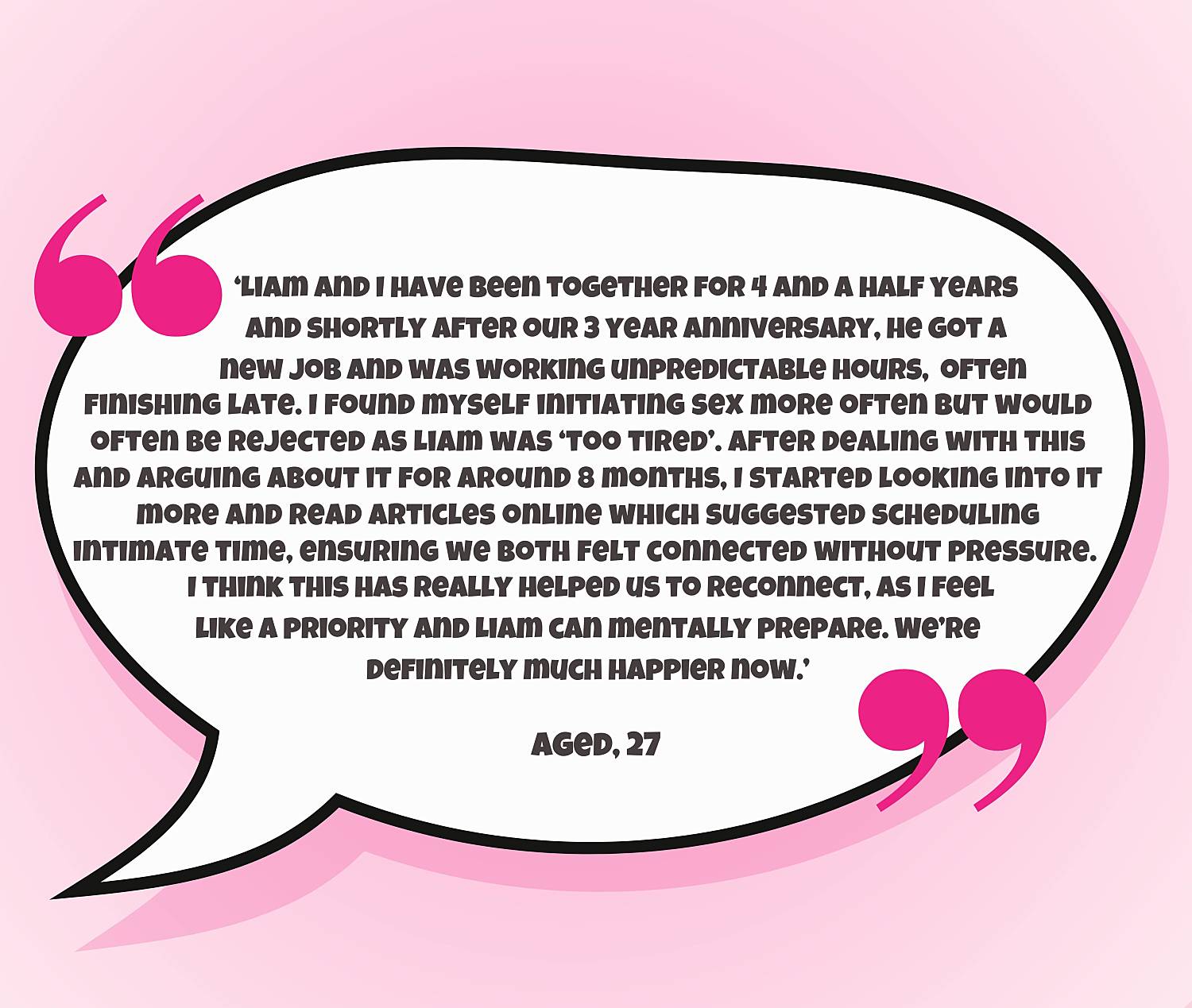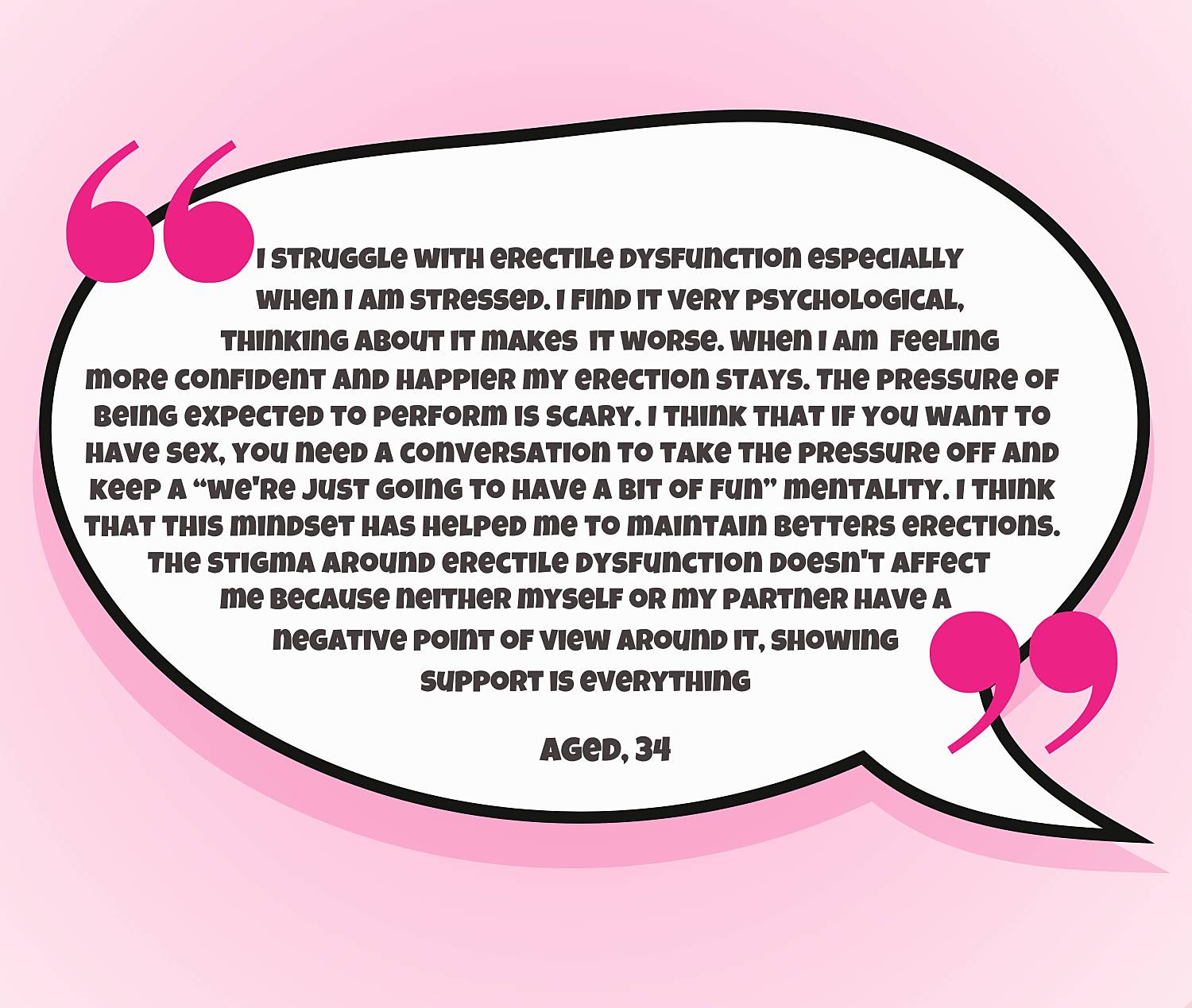The Intimacy Ally
In any relationship, intimacy and communication go hand in hand, forming the foundation for a strong and fulfilling connection, but often conversations and dealing with intimacy issues can be a struggle. From talking about kinks and fantasies to performance anxiety and erectile dysfunction, when it comes to discussing our sexual needs and desires, many of us hold back.
According to our latest research, a significant number of people are struggling with this crucial aspect of their relationship. We found that almost 1 in 5 people in the UK are unsatisfied with their sex lives, while around 1 in 7 don’t feel comfortable communicating their sexual needs and desires to their partners.
We feel those numbers are too high, and in order to help both couples and singles bridge this gap, we’ve created the ‘Intimacy Ally’—a new interactive resource designed to foster open dialogue and deepen emotional connections.
The Intimacy Ally Tool
The Intimacy Ally is a quiz that guides you through a series of questions tailored to address common barriers to sexual satisfaction, based on our research and expert insights. Answer ten questions, and you will receive an “intimacy score” along with feedback and actionable steps approved by our relationship and sex experts to enhance your intimacy and overall relationship satisfaction.
Once you’ve used the tool, browse this page for further information on how best to address intimacy issues and see that you’re not alone in your experiences, with our research and case studies to explore.
The reality of unsatisfied sex lives
Our survey reveals that 18% of people are unsatisfied with their sex lives, with men (23%) reporting higher dissatisfaction compared to women (14%). This discontent extends to the frequency and variety of sexual activities, where 21% of men and 12% of women express dissatisfaction with how often they engage with their partners, and 15% are unhappy with the variety, showing a clear need for more open dialogue.
While 54% overall do rate their own level of sexual performance as positive, over a quarter (27%) rate their partner’s usual sexual performance as either very poor, poor, or average, and 32% say they often feel their sexual needs are not being met.
One of the most striking findings is that 14% of people don’t feel comfortable communicating their sexual needs and desires to their partner, and 23% never give feedback about their sexual experiences. This silence can lead to a cycle of unmet needs and unaddressed issues, contributing to the overall dissatisfaction that many feel in their relationships.
Dr. Michael Krychman, the chief medical doctor at Uberlube, explains that, “Talking about your sexual needs and wants is now more important than ever. Have frank, honest conversations with your partner. It is important to discuss your sexual wants and plan your joint sexual journey together.”
Sophie, 27 from Hertfordshire spoke to us about her mismatched libido with her boyfriend, Liam:

The role of emotional connection
However, it’s evident that physical performance isn’t the only key to satisfaction—emotional connection plays a pivotal role too. In fact, 32% of respondents say that emotional connection with their partner is the most important factor in sexual satisfaction. It comes above physical attraction (30%), mutual understanding of each other's needs (27%), and open and honest communication about desires and boundaries (18%).
External pressures can also strain the emotional connection, affecting how it translates into physical intimacy. Nearly a third (30%) of people report feeling pressured to meet certain sexual standards or expectations, with 34% of men and 26% of women experiencing this. Whether these pressures stem from social media, peers, or cultural norms, they can hinder performance and create unnecessary barriers to intimacy that are ultimately avoidable.
Further barriers that hinder sexual enjoyment include stress and fatigue (19%), differing libido levels (19%), and issues with body image (18%), while 17% of men (and 10% of women) say performance issues such as erectile dysfunction have a negative impact. Our previous research found that 69% of men and women have, either themselves or through their partner, experienced erectile dysfunction, with over half of men grappling with its negative effects on their mental health.

“Taking a break from the pressures of work, finance, politics, and other adult responsibilities is a necessity. Chronic stress and fatigue zap your sex drive and may impact your sex hormones in the long run.
“Are you mindful or mind full? Are you relaxed, or is there constant brain chatter distracting you from being in the sexual moment? Take some much-needed time to recharge yourself—plan a staycation, get lost in an enjoyable novel, or listen to some soothing music. Exercise can also provide a method to destress. Sex can give you refuge from the chaotic world around you.”
Issues with intimacy
One fifth of people in the UK report that their partner is not very sexually adventurous, and it seems that many address this issue by turning to alcohol. In fact, 39% say they are more sexually adventurous after having a drink, with a third (33%) even stating that they enjoy sex more this way. While this might temporarily alleviate the high levels of anxiety (34%) that both men and women feel about their sexual performance, open and honest conversations should be the first step in addressing these concerns.
Addressing these issues becomes even more important when considering the common turn offs in the bedroom. Bad breath and body odour top the list at 29% and 27%, respectively, followed by a lack of enthusiasm (20%), dirty bed sheets (18%), and finishing too fast (16%). Other significant turn offs include faking pleasure (15%), selfishness during sex (12%), lasting too long (11%), and using ‘too much teeth’ (10%). By fostering open dialogue, couples can work together to overcome these challenges and create a more satisfying and enjoyable sexual experience for both partners.
Top three intimacy tips for couples and singles
We spoke to Eloise Skinner, a psychotherapist and author, who provided her top tips to help with intimacy for both couples and singles.
Tips for couples
- Make a list of five things about your partner that you're most grateful for, then share your lists
On a piece of paper (or note on your phone), list five things in response to the question, 'What about my partner am I most grateful for at the moment'? These could be practical things (for example, your partner helped you complete a task or took over a responsibility for you), emotional (for example, your partner provided great support at a difficult time), or anything else (for example, your partner's sense of humour, habits, behaviours, or thoughts). Once you have your list, share it with your partner and have them share theirs. This can be a great way to deepen the connection between you, as well as foster a better understanding of what your partner appreciates.
2. Take turns planning a perfect day or date night
Designate two days or date nights on your calendar for this activity. Using a similar budget, each of you is tasked with planning your perfect day or date night, incorporating all the elements that feel most important or meaningful to you. Ahead of the experience, talk to your partner about what you've chosen and why it's important to you. This is a great activity that enables you to have a fun shared experience and will also increase mutual understanding of love languages, interests, and preferences.
3. Describe your favourite sexual experience from your relationship
Take turns to describe a favourite sexual experience from your relationship so far. Spend some time thinking about what it was that made this such a great experience for you, and describe it to your partner, with emphasis on their role in making it such a memorable moment. You can also use this as an opportunity to chat about sexual experiences you'd like to do more of in the future.
Tips for singles
1. Read, watch, or listen to something romantic
Even if you're not usually into the romance genre, experiment with exploring some romantic reading, podcasts, audiobooks, or films. Allowing yourself to explore different experiences of romance through the arts or literature can give you some great indications of what feels right for you, what you like, and what you don't like.
2. Set the scene for yourself
On your next evening-in, take a moment to prepare your space in the same way you would if you had a partner or date coming over. Put everything in its place, turn down the lights, perhaps light a candle or incense, and create an environment in which attention is given to every detail. Creating intentional moments for yourself in this way can be an incredibly fulfilling experience and enables you to show yourself the same amount of care you would take for a partner.
3. Take a full-body, everything shower (maybe even by candlelight)
When you next head to the shower, take your time. Make sure you have everything you need set up—fresh towels, your favourite products, music, or a peaceful silence where you won't be disturbed. Leave your phone on silent and spend some time enjoying the physicality and intimacy of the shower, paying attention to the touch of your hands on your own body. You can make these kinds of intimate shower practises a part of your regular self-care routine if you enjoy them.
Summary
As we can see, intimacy and communication are the cornerstones of any successful relationship, yet many couples and individuals struggle with these aspects. The introduction of our ‘Intimacy Ally’ tool aims to bridge these gaps by fostering open dialogue and enhancing emotional connections.
Addressing intimacy issues, including stigmatised topics like erectile dysfunction, with professional guidance and erectile dysfunction medication like Viagra can also play a crucial role in maintaining a healthy relationship. By tackling these concerns openly, couples can work together towards greater emotional and physical fulfilment. Whether it’s overcoming performance anxiety, improving communication, or exploring new ways to connect, deeper intimacy begins with honest conversation and mutual understanding.
Take control of your sexual health with our expert-recommended treatments for erectile dysfunction, including Cialis, Sildenafil, and more, discreetly delivered to your door.